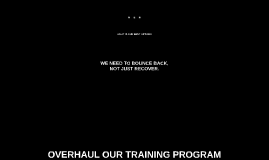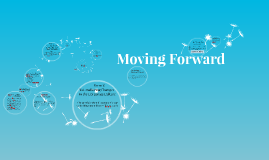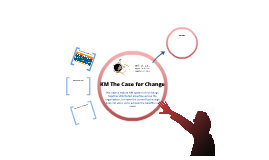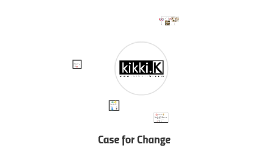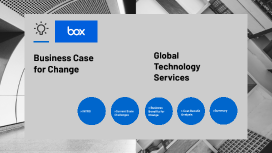Case for Change
Transcript: MOVING FORWARD "Until Change sinks deeply into a company's culture, a process that can take 5 - 10 years, new approaches are fragile and open to regression" (Kotter, 2007) 1. Change processes comprises phases that are enormously time consuming and can't be skipped 2. Critical mistakes in any phase can undermine the change, retard progress and circumvent hard-won gains. "Action is essential, both to empower others and to maintain the credibility of the change effort as a whole" (Kotter, 2007) To increase the likelihood of success and ensure that the project delivers the results and outcomes we need, we need to apply a structured approach for helping employees embrace and adopt the change. We need change management on [ insert name of project ]. "Guiding change may be the ultimate leadership test... No business survives over the long term if it can't reinvent itself" (HBR editor, 2007) "If you can't communicate your vision in 5 min or less & get a reaction that signifies understanding & interest, you are not done" (Kotter, 2007) "Change sticks when it becomes, "the way we do things around here"" (Kotter, 2007) Error 6: Not Systematically Planning For, and Creating, Short-Term wins 1. Transformation Realised: Change Management provides a tried and tested method facilitating and enabling required individual change to take place. 2. Increased Project Success: Prosci’s research concludes that projects with more effective change management are directly correlated to meeting their objectives on time and within budget. Projects with more effective change management met or exceeded objectives 96% of the time, while projects with poor change management met or exceeded their objectives 15% of the time 3. People Impacting Project ROI: Effective change management drives project ROI through enhanced individual speed of adoption, higher utilisation rate and greater proficiency. 4. Right First Time: Effective Change Management eliminates project costs such as redesign, revisit, redo, reevaluate, retrain, rescope & reschedule. 5. Cost saving at Organisational Level: Effective Change Management helps mitigate organisational level risks such as lowered productivity, talent flight, stress, lowered morale and fatigue "Without motivation people won't help" (Kotter, 2007) Need 75% of leadership to believe status quo is untenable "Use every possible channel, especially those that are wasted on non-essential information" "Nothing undermines change more than behaviour by leadership that is inconsistent with their words" (Kotter, 2007) Error 8: Not Anchoring Changes in the Corporate Culture Moving Forward "Why Transformation Efforts Fail" (Kotter, 1995) "Success requires powerful coalition ito: titles information and expertise reputations & relationships" ( Kotter, 2007) Kotter observed over 100 companies "make fundamental changes in how business is conducted in order to help cope with a new, more challenging market environment" (Kotter, HBR 2007) He identified 8 ERRORS that later formed his definitive work on Leading Change (8 Steps to Transforming your Organisation) Error 3: Lacking a Vision Change management: the process, tools and techniques to manage the people-side of change to achieve a required business outcome. (Tim Creasey, Prosci) Error 1: Not Establishing a Great Enough Urgency Case for Change Management: Kotter's research concludes organisational transformation is significantly more: profitable successful and sustainable with CHANGE MANAGMENT Error 5: Not Removing Obstacles to the New Vision In Closing ... Moving Forward "Commitment to produce short-term wins help keep the urgency level up & force detailed analytical thinking that can clarify or reverse thinking" (Kotter, 2007) Error 4: Under Communicating the Vision by a factor of 10 What is Change Management? Error 7: Declaring Victory Too Soon Error 2: Not Creating a Powerful Enough Coalition "The bottom line benefits of the Change can only be realised when individuals adopt and proficiently use the new way of working that impact them... The case for change management is inextricably connected to project and organizational success.” Tim Creasey, Prosci Chief Development Officer Kotter's 2 General Lessons: ... the Ultimate Test of a Leader? Prosci's Data Supporting the Value of Change Management






